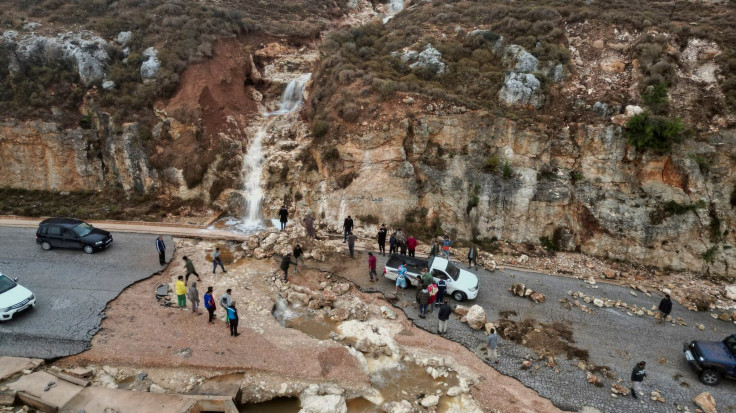'Tsunami-like' dam flooding in Libya leaves nearly 6,000 dead
Chaos continues in Libya after two dams flooded the city of Derna, with more than 5,000 people killed by the tsunami-like wave that has displaced over 30,000 residents.

On Sunday 10 September, two dams collapsed due to catastrophic flooding in the port city of Derna. Records show that, only two days after the fatal incident, the death toll has exceeded 5,300.
The Red Cross has also reported that at least 10,000 people are missing, with the local authorities presuming that many of those yet to be found, are deceased.
The International Organization for Migration (IOM) in Libya have also said that the disastrous flooding has displaced at least 30,000 people.
The IOM announced: "IOM & partners are immediately prepositioning NFIs, medicines, search and rescue equipment and personnel to the affected areas."
"The death toll is huge," said Tamer Ramadan, the Head of the International Federation of Red Cross and Red Crescent Societies delegation in Libya.
The flooding collapse of the dams caused a tsunami-like wave to rage through the city, causing several multi-story buildings to fall in its path.
A spokesperson for Libya's eastern government, Tariq al-Kharraz, noted that neighbourhoods had been completely washed away, with many victims of the disaster being swept out to sea.
The dams were put in place to protect the city, which has a population of 90,000, from any flooding. The seasonal river, Wadi Derna which dissects the city, originally flowed from the highlands in the southern region.
Out of those who were killed by the wave of muddy water, at least 145 of them were Egyptian nationals – according to official sources in the north-eastern city of Tobruk in Libya.
Osama Aly, a spokesperson for the Emergency and Ambulance service in Derna, told reporters that due to the huge pile of injuries, hospitals are no longer operable.
Osama also noted that the morgues are now full, with dead bodies being left on the streets outside.
Terrifying scenes of dozens of bodies of victims of the Libyan floods piled up in front of a hospital in the city of Derna#Libya pic.twitter.com/ju12Ooir1Z
— Amal Al Yamani 🇾🇪 (@a868mou) September 12, 2023
Hichem Chkiouat, the Minister of Civil Aviation in the administration that leads eastern Libya has called for international help, admitting that Libya does not have the experience to deal with a catastrophe of this magnitude.
Emad Milad, who lives in Tobrok, told reporters that eight of his relatives have been killed by the extreme flooding in Derna.
Emad said: "My wife Areej's sister and her husband both passed away. His whole family is also dead. A total of eight people are all gone. It's a disaster. It's a disaster. We are praying for better things."
Due to a rivalry between the two governments, Libya was already vulnerable to extreme weather conditions.
Prior to the disaster, the people of Libya witnessed a decade of chaos which came after the popular uprising in 2011. The uprising saw the country's dictator Muammar Gaddafi, who had been in power since 1969, assassinated by rebel forces.
The country's lack of political guidance "pose challenges for developing risk communication and hazard assessment strategies, coordinating rescue operations, and also potentially for maintenance of critical infrastructure such as dams", revealed Leslie Mabon, a Lecturer in Environmental Systems at The Open University.
It has been reported, that the vicious and torrential rains that lashed over the country on Sunday, were caused by the same Storm Daniel that hit Greece, Bulgaria and Turkey last week.
Climate experts have also recognised that in 2023, the world has seen record-breaking weather extremes and climate disasters that have caused wildfires and off-the-chart temperatures.
Karsten Haustein, a Climate Scientist and Meteorologist at Leipzig University in Germany, said: "The warmer water does not only fuel those storms in terms of rainfall intensity, it also makes them more ferocious."
Four major oil ports have reopened, following a forced closure that was issued Saturday after warnings of the storm emerged.
Ports in the eastern region, Brega, Es Sidra and Ras Lanuf, were also reopened on Tuesday 12 September.
© Copyright IBTimes 2024. All rights reserved.






